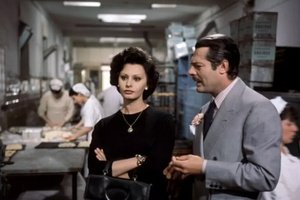He spoke at the 13th International Symposium on Fossil Cnidaria and Porifera, held from September 3 to 6 at the University of Modena and Reggio Emilia (Unimore), in Italy.
The symposium takes place every four years, with its first edition held in 1971 in Novosibirsk in Russia.
It’s the first time the international symposium has been held in Italy.
Before Modena, it was hosted by Paris, Warsaw, Washington, Brisbane, Münster, Madrid, Sendai, Graz, St Petersburg, Liege and Muscat.
At the event, geologists, palaeontologists, marine biologists and coral experts from 23 countries met to illustrate and discuss the latest research findings on some of the richest and most diverse ecosystems in the marine environment, which are also among the most at risk due to climate change and acidification of oceans.
Pandolfi gave a lecture entitled ‘Stories from the past - prospects for the future: Whither the coral reef?’
In his talk, Pandolfi considered whether fossil records can help scientists predict and address urgent conservation, ecological and evolutionary issues which are evident in the decline of the earth’s coral reefs.
He has previously written and published articles with The Conversation and The Guardian, including one piece entitled Five things we can do right now to save the Great Barrier Reef (2016).
In that article, Gandolfi recommends:
- An increase in funding to improve water quality in the reef which has been contaminated by fertiliser and runoff
- A moratorium on coal
- Establishment of an independent Great Barrier Reef Marine Park Authority
- Making science the basis for decision making
- Resisting news fatigue
In 2012, Australians learned the shocking news that live coral cover on the Great Barrier Reef had decreased by 50 per cent over the past 27 years.
Then, it was heard that almost 25 per cent of the entire Great Barrier Reef had been lost over the span of a few weeks during the 2016 bleaching event.
Pandolfi recommends remaining vigilant and putting pressure on the government in the fight for our coral reefs.
Pandolfi’s paternal grandparents were from Ascoli Piceno, in Le Marche.
He currently heads the Marine Palaeoecology Lab in the School of Biological Sciences at UQ, Brisbane.












